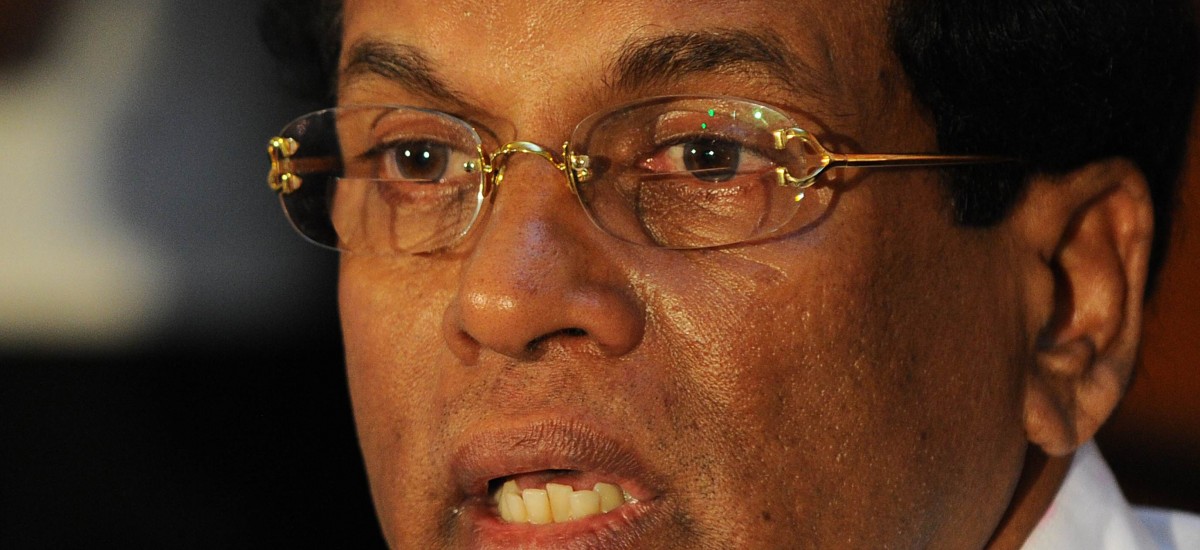AFP PHOTO/ Ishara S.KODIKARA via Japan Times
Yesterday’s energy
Sri Lanka is still overwhelmed with the peoples’ energy that a few days ago brought the immeasurable gift of democratic regime change.
As the campaign heightened, one word; “ wenasak”– (Sinhala-“a change”) became a spontaneous and variable slogan or code, determined by the context in which it was used. There was no need to mention a name or colour or symbol; people simply wanted a change. Over 80% voted.
“Wenasak” was however possible due to a convergence of several democratic forces. Some of these were;
- The several opposition politicians who tirelessly monitored a deteriorating political culture and addressed matters of public interest.
- The determined vigilance of a cross section of Civil Society ranging from formal to informal groups who upheld the cause of good governance.
- The persistence of sections of the media, who investigated, exposed, wrote and spoke in circumstances of deceit, censorship and harassment.
- The dogged initiative of a small group of persons led by a senior Buddhist Monk who asserted that a primary cause of our crisis in governance; the executive presidency, can and must be abolished.
- Shrewd and carefully guarded political planning, in a culture infested with informants and surveillance that facilitated the emergence of a common opposition candidate and a rare show of consensus among several political parties to come together to back him all the way.
- The professional and sensitive role played by the Elections Commissioner and the IGP and their respective departments in circumstances of acute politicisation.
- The presence and expertise of teams of monitors and observers; both local and International.
- The street wisdom of at least one political party whose cadres provided a protective presence that contested voter intimidation and helped build public confidence on the ground.
- The quiet resilience of the people who affirmed their democratic right to come out in large numbers and vote, despite desperate attempts to manipulate their democratic freedom of choice, through the abuse of state resources and vicious propaganda.
Todays’ reward
This cluster of forces points to persons of conscience who placed the common good before self- interest. Many worked separately but all contributed to a common momentum. As some spoke and acted, others under pressure to give up were encouraged to renew their strength to persevere. The nation was not without persons of calibre.
Identity added to this impetus as more and more names and organisations stood up to be counted. People had understood that if “Wenasak” did not come now it would not come for a long, long, time hence. The result was an incredible non-violent peoples’ revolution. The sympathy of the world turned to admiration.
Tomorrows’ nation
These forces have proved that no matter how bleak the future of a nation may appear, regime change is possible and best from within. Waiting for external intervention invariably proves counter-productive. It neutralises hidden reserves of peoples’ energy, inevitably stimulated under oppressive regimes, and tends to divert a conflict in a more complex direction. It can also become an excuse for silence.
Just as this regime change took time, the change in social values and political culture that must follow will also take time. But tomorrow begins today. All who want a just, reconciled and safe nation are to sustain this momentum. The nations’ need of diverse human resources and skills; critics and visionaries; sages and activists, never ends. The forces that made “Wenasak” possible consequently remind us that if the nation is to embrace truth, justice, reconciliation and integration, both people and their elected representatives are called to continue to place the common good before self-interest.
They also teach us that none can do it all. In fact none should be allowed to, because it is when some imagine they can, that we return to where we desperately want to move away from.
With Peace and Blessings to all
Bishop Duleep de Chickera

